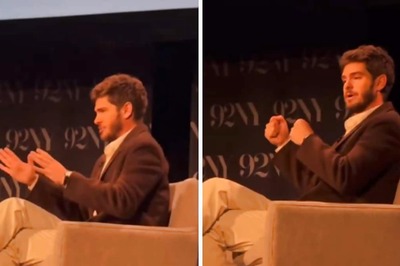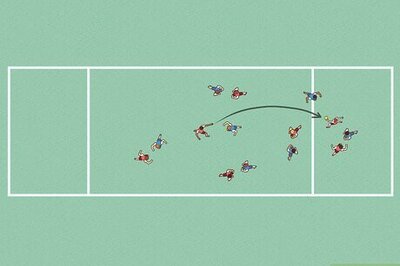
views
New Delhi: The Supreme Court Monday asked four senior advocates to convene a meeting to decide on re-framing and adding issues to be deliberated by it in the matter relating to discrimination against women in various religions and religious places including Kerala's Sabarimala Temple.
A 9-judge Constitution bench, headed by Chief Justice S A Bobde, commenced the hearing on the matter referred to it by a 5-judge bench on November 14 last year on various issues including evolving a judicial policy to deal with matters relating to religions, their essential practices and the scope of judicial interventions.
At the outset, senior advocate Indira Jaising, who has been appearing in Sabarimala and other matters, opposed the reference.
She said without holding that the Sabarimala judgement was wrong, the matter could not have been referred to a larger bench and moreover, the 7-judge bench verdict in the Shirur Mutt case has not been doubted or assailed to justify a reference to the larger bench.
"We are not hearing the review petitions in the Sabarimala case. We are only on the reference points," the bench clarified.
Jaising said: "There is no defect in the (Sabarimala) judgment. The reference order only says that the issues arising in cases of entry of Muslim women in mosques, rights of a Parsi woman married to a Non-Parsi and the practice of Female Genital Mutilation by the Dawoodi Bohra community may overlap with the issues in that judgment, and that the prospect of the reference of those issues to a larger bench cannot be ruled out.
"No competent court has said that Sabarimala judgment is bad in law. If Your Lordships say it is not correct, only then will subsequent questions arise."
She said that the issues raised in the reference order were "academic in nature" and it was not possible for the court to answer them without dealing with the facts of the case. "If necessary, only for the purpose of reference to facts, and not for decision, we can list all those cases", the bench said.
Jaising said that Hindu, Muslim and Parsi laws cannot be governed under the same regime and a common judicial decision was not possible. Senior advocate Rajeev Dhavan said the court needs to examine the facts of the each case to arrive at a decision.
Senior Counsel A M Singhvi, appearing for Dewasom Board, said the issue before the court was "the interplay of freedom of religion, Article 25 and 26, Article 14, Article 21 and other provisions of Part III of the Constitution. It doesn't mean 5-6 Chapters of the Constitution. Such a sweep would shake every case-law from 1950".
He said the matter was extremely sensitive and sought time for preparing arguments in the case.
Solicitor General Tushra Mehta also agreed with Singhvi and said that issues to be dealt by the bench needed to be fine-tuned. "We may list all the cases, Dawoodi Bohra, Mosque entry, Parsi woman, before us for facts, even though we won't decide them," the bench said.
The bench categorically said that for the time being, it was not venturing into the issues of polygamy and nikah halala pertaining to Muslims.
The bench also rejected the plea that lawyer Mathews J Nedumpara, who has been barred by a judgement from appearing before the apex court, be allowed to argue in the Sabarimala case. "We will not review Justice Nariman's judgment (debarring advocate Nedumpara)", the bench said.
The top court said the 9-judge bench will proceed chronologically with the hearing, starting with the Sabarimala case as it was the "oldest" matter.
















Comments
0 comment